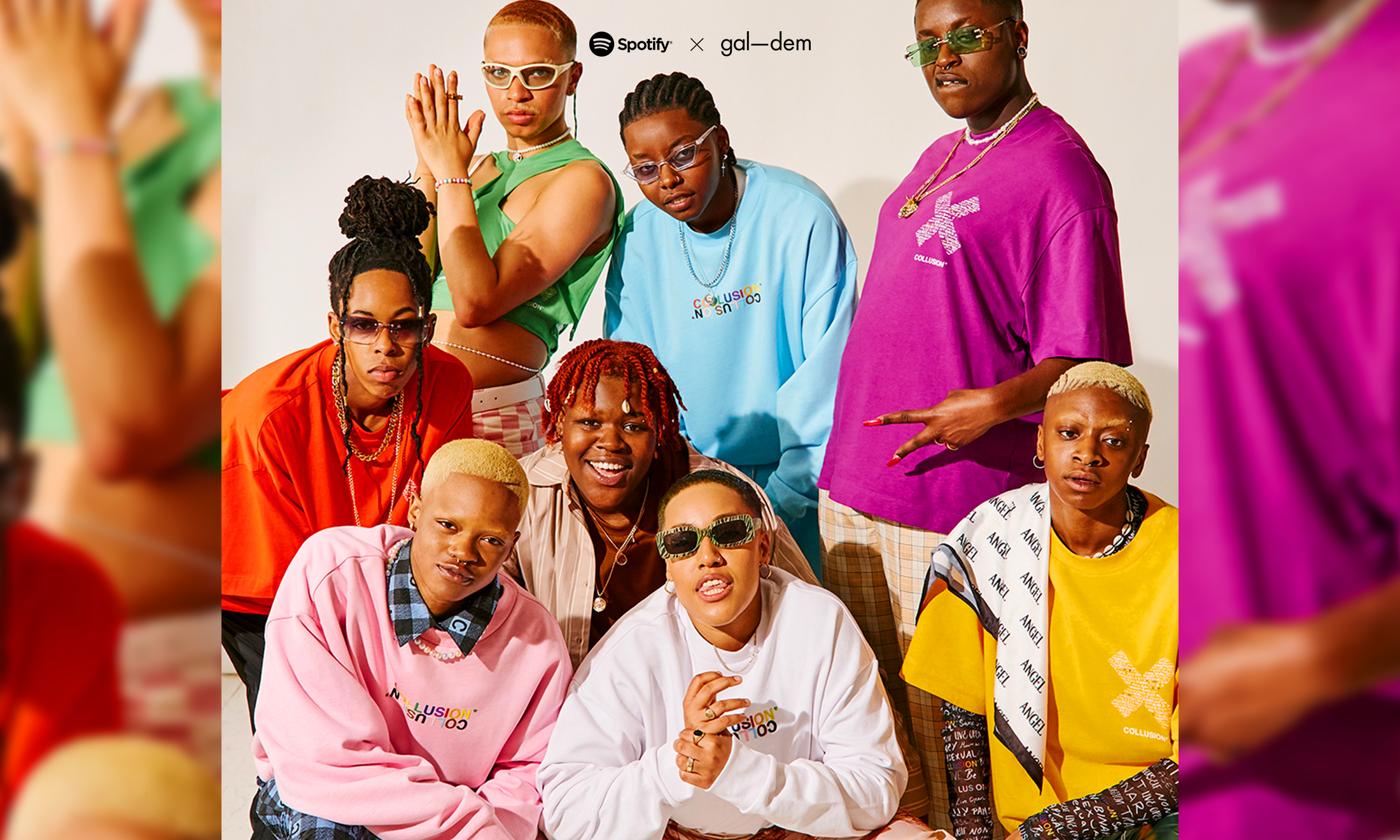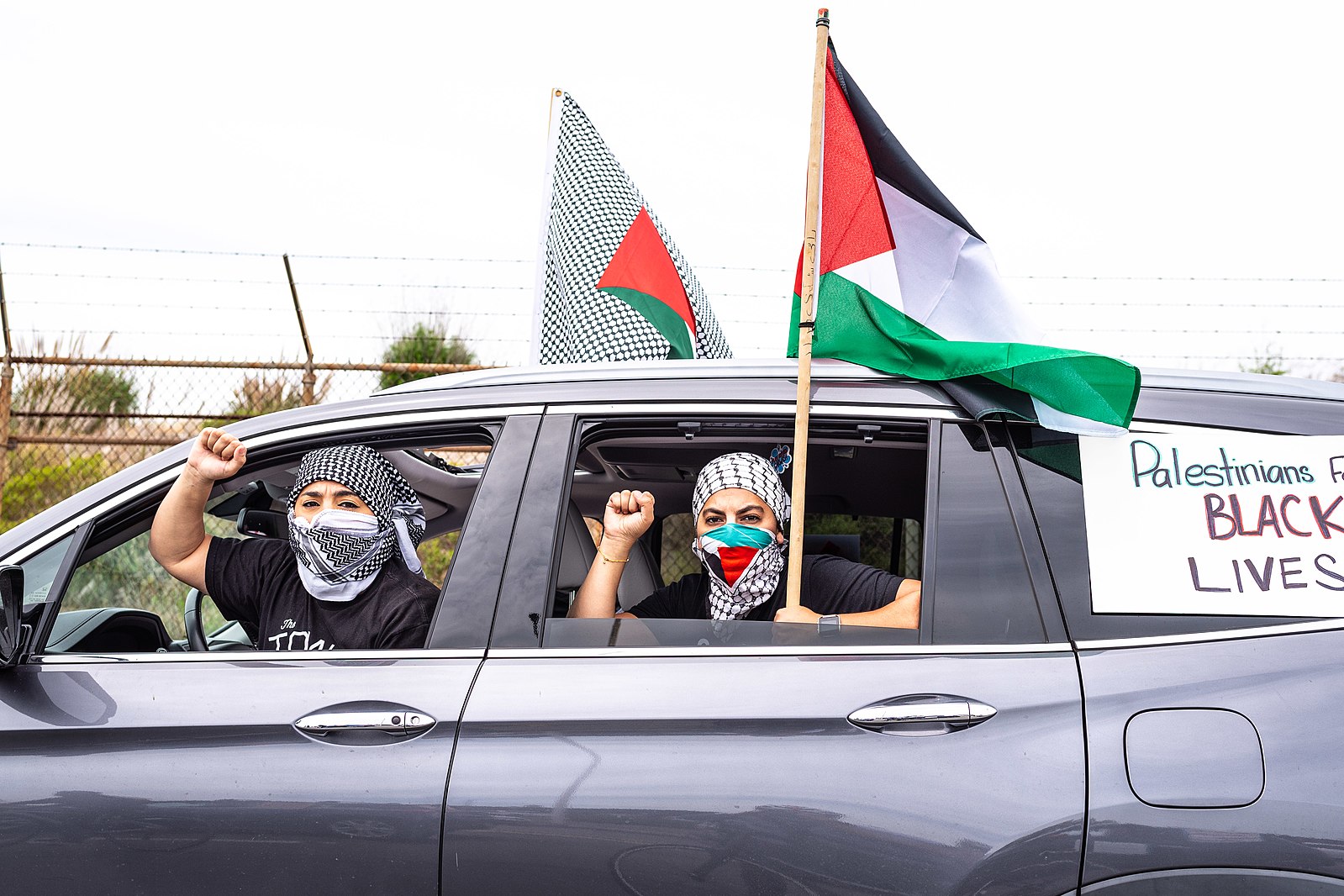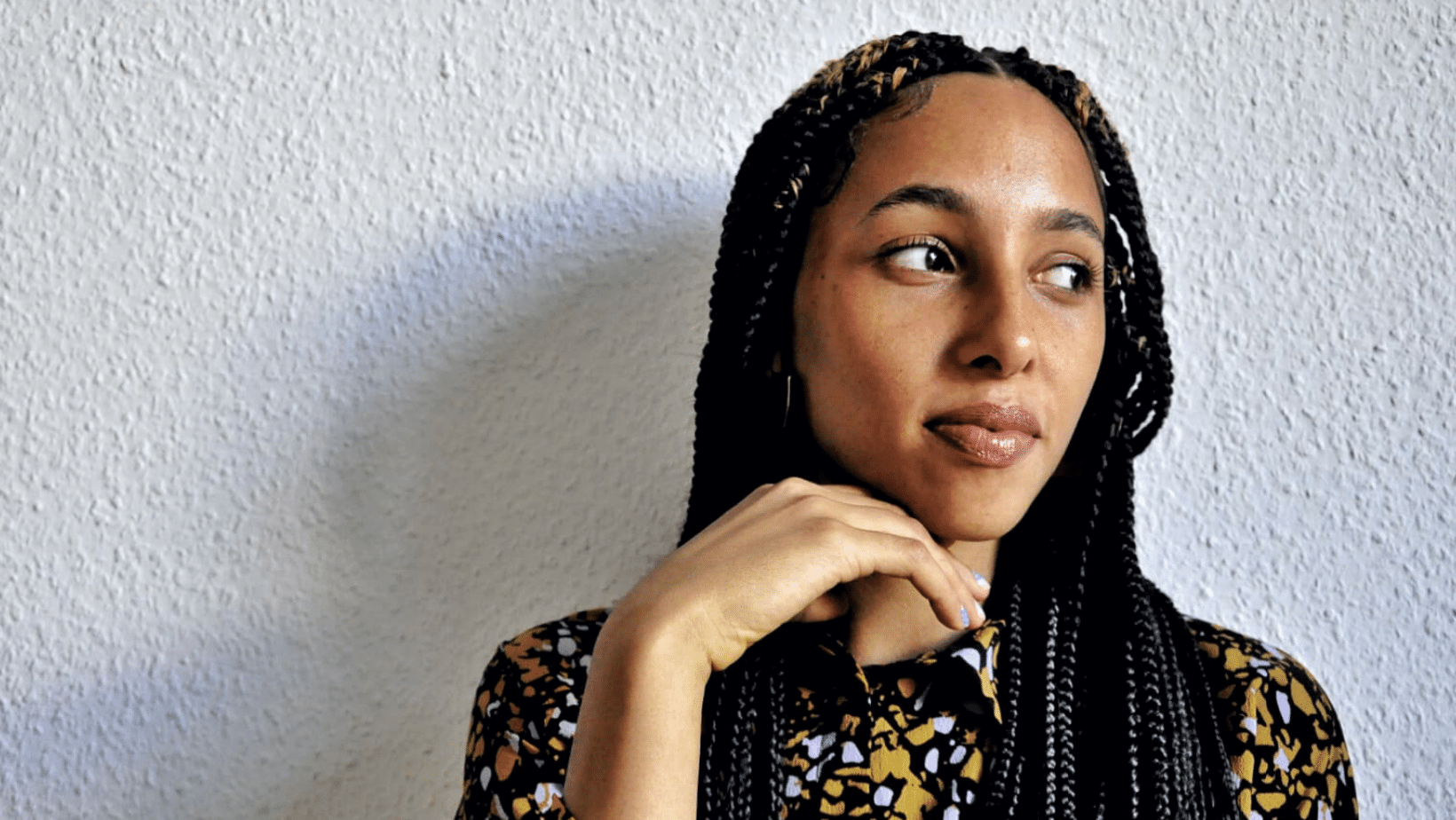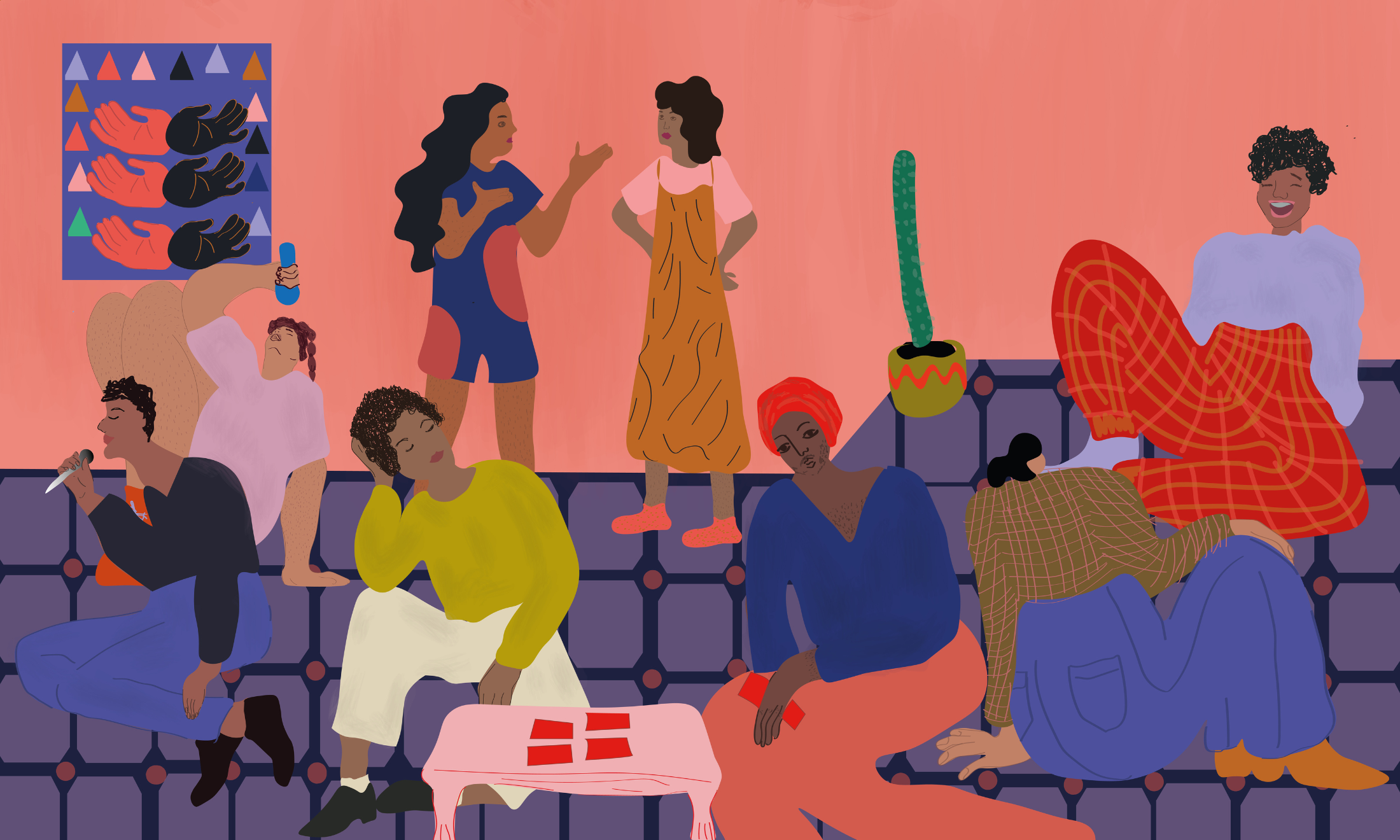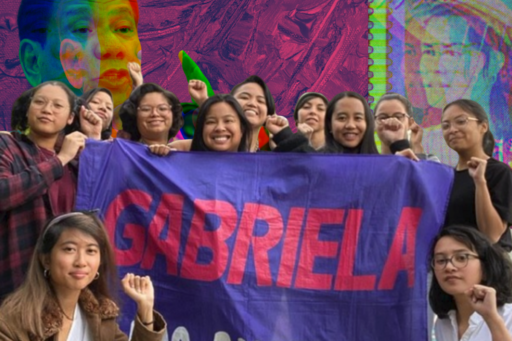
Meet GABRIELA, the frontline feminist group fighting government violence in the Philippines
Samantha Jean Sumampong explains how joining an international social justice group helped her fight autocracy and reconnect with her Filipino heritage.
Samantha Jean Sumampong
17 Feb 2020
Trigger warning: mentions of state violence, death
Credit: photography provided by author
My journey to becoming part of GABRIELA, the grassroots feminist group fighting for national democracy and socialism in the Philippines, began after attending a screening of Filipino documentary Motherland, during the Los Angeles Asian Pacific Film Festival in April 2018. On the way out, I spotted a fellow filmgoer wearing a purple baseball cap with the phrase, ‘Pec-Pec Power,’ embroidered on the brim in white lettering.
It caught my attention; in Tagalog (the most commonly spoken language in the Philippines) ‘pec-pec’ is slang for vagina. I went up to the wearer to ask where she bought her hat and was pointed towards a table bearing pamphlets and posters about an organisation titled the ‘General Assembly Binding Women for Reform, Integrity, Equality, Leadership and Advocacy’ – aka GABRIELA. I asked one of the women sitting behind the tabletop table to tell me more. She explained that GABRIELA is a national grassroots organisation that advocates for marginalized women and children in the Philippines.
“I joined GABRIELA thanks to growing curiosity about the effects of colonialism and imperialism on the Philippines. I wanted to be part of a social justice movement that was also integral to my cultural identity”
It was the first time that I’d heard of such a group; I was born and raised in a predominantly white neighbourhood, on the outskirts of Los Angeles. Growing up, I didn’t feel connected to my Filipino roots in the way I thought I should be. I didn’t speak Tagalog or any Filipino dialect; my parents hadn’t taught me after a childhood speech impediment caused a paediatrician to recommend I learned one language only to avoid confusion, and I did not grow up around Filipino peers.
As a result, when I went on visits to the Philippines, I had such difficulty communicating with my family and extended relatives that I felt disconnected. It didn’t help that I did not have other Filipino friends to relate to about cultural specific issues; I’d grown up in a neighbourhood with few Filipino peers where ‘assimilation’ was encouraged. I found that if I expressed issues that I had about my Filipino family, like their concerns about sleepovers, my predominantly white group of friends could not comprehend what I was going through.
So I joined GABRIELA thanks to growing curiosity about the effects of colonialism and imperialism on the Philippines, the 2016 election of Donald Trump, and increased concern about right-wing individuals ascending to leadership roles across the world. I wanted to be part of a social justice movement that was also integral to my cultural identity. The first meeting I attended was a general assembly at La Casa Roja, a community center located in Los Angeles’ Koreatown. Members voted for the new executive committee for the Los Angeles chapter, discussed political developments in the Philippines and planned on how to approach them as a group. The room was buzzing with chit-chat, excitement, and intensity. It was the first time I’d been to a group dedicated to changing the political spectrum of the Philippines as a whole.
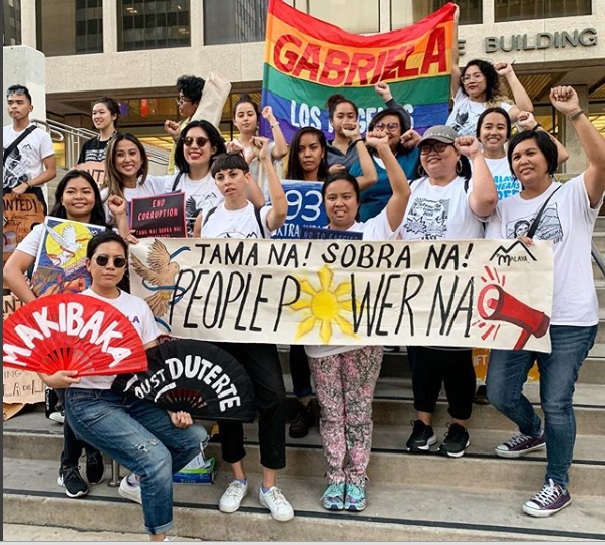
GABRIELA was initially founded in response to the Filipino population’s unrest regarding the brutal dictatorship of Ferdinand Marcos, which lasted from 1965 until 1986. The organisation began in March 1984 when women representing various organisations, institutions, and groups gathered at St. Scholastica’s, a Catholic college located in Manila. It was named after Gabriela Silang, a Filipina revolutionary leader from the 1700s, best known for breaking free from the traditional Christian role of women and leading a revolt against Spanish colonialism.
Today it boasts more than 200 organisations, institutions, and programs for women throughout the Philippines. It has chapters in the United States, Hong Kong, Japan, Netherlands, London, Italy, Taiwan, and the United Arab Emirates and holds monthly general meetings. Alongside activism, it provides education, like one Philippine Society and Revolution workshop (PSR) I attended, which taught me the history of my ancestral land not covered by the books we learned from in my American schools. I learned how external Spanish and American imperialism, feudalism and bureaucratic capitalism had rotted the Philippines and established the conditions for dictatorship and corruption that it suffers from today.
Since 2016 the Philippines has been dealing with another autocratic leader: President Rodrigo Duterte. On taking office, Duterte has carried out a violent “War on Drugs” campaign, which sees police raid homes to arrest suspected drug users and drug dealers. Human Rights Watch estimates around 12,000 people have died as a result of the campaign over the past three years, mostly Filipinos who make up the “urban poor”.

The police decide who are suspected drug dealers or users by creating a ‘drug list’, informed by them and the local neighbourhood watch. Then they go to the suspected individual’s home and inform them that they were on the drug list. These visits are not a warning; instead they are to confirm the identity of suspects. After the confirmation of the suspect’s name, the police or people working for the police – who often have their faces covered and are dressed in black – shoot the suspect. They have no warrant.
There’s also been documentation of the police planting weapons near suspects’ bodies to rationalise their use of force. This large scale extrajudicial violence that Duterte employs against drug dealers and users is not new. This tactic was a marker of his 22-year tenure as mayor of Davao City and a significant part of the presidential campaign that propelled him to power.
“Those murdered as part of Duterte’s ‘War on Drugs’ are mostly male, but their deaths have a huge knock-on effect for entire families. They are fathers, brothers, husbands, and sons”
According to reports from the Philippines National Police, there have been 5,526 suspects killed in police operations from July 1, 2016, to June 30, 2019. That number does not include the thousands killed by anonymous gunmen that the police do not seriously investigate, which pushes the death toll as high as 27,000 according to estimates of domestic human rights groups.
Research conducted by Human Rights Watch and media outlets including Rappler and Reuters shows that these vigilante-style killings are often executed by police officers or by assailants connected to the authorities. At first, extrajudicial killings were clustered in Metro Manila, but from 2018, killings have been carried out in other urban areas such as Cebu City, and rural, highly militarised areas like Mindanao. In the countryside, indigenous leaders, farmers, and human rights workers are executed.
While those being murdered as part of Duterte’s ‘War on Drugs’ are mostly male, their deaths have a huge knock-on effect for entire families. They are fathers, brothers, husbands, and sons. While Duterte believes his drug policy is reducing crime, it’s actually contributing to economic insecurity. Thousands of women have been left without financial support due to the sudden and violent death of their bread-winning partner, or family member. This leaves many bereaved women in precarious situations in urban areas of poverty.
There’s also rising paranoia within communities; women who were once friends and neighbours in the barangays (villages) of the Philippines, where government policy is enacted first, have turned informer on each other. Distrust is rife, as is red-tagging (labelling an individual as a “red” aka a communist, a group persecuted by Duterte) a neighbour if they are suspected of housing an alleged drug user or drug dealer. Mothers of addicts are also ostracised and seen as failed parents.
GABRIELA is particularly concerned with the Duterte’s campaign against drugs because it’s a war on the urban poor and a cover to target activists or anyone who is outspoken towards the government. Many of the secondary victims of the violent campaign are single mothers and children that are left susceptible to dangerous lifestyles or pushed further into poverty.
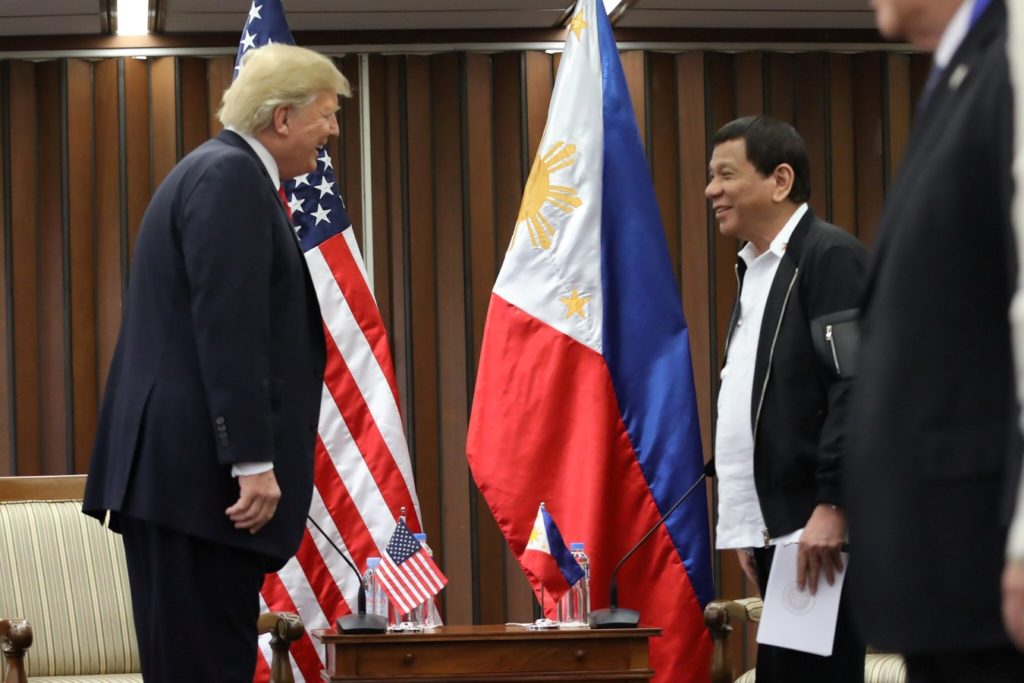
My chapter of GABRIELA Los Angeles is fighting back by organising people in the United States to lobby Congress to cut military and police aid to Duterte that is used to fund his War on Drugs. So far, the US has paid half a billion dollars to the Duterte regime. GABRIELA also organises solidarity trips to the Philippines to help spread Filipinos’ stories in the US.
On July 22, 2019, I attended my first People’s State of the Nation Address in front of the Philippine Consulate steps in downtown Los Angeles. This was a prayer vigil and rally to oppose Duterte’s fascist policies and regime. It was held during the same day when Duterte gave his annual state of the nation address to the Philippines where he defended his War on Drugs campaign and requested the Philippine congress to reinstate the death penalty for any crimes related to drugs. It was an action that had taken seven months to organise and bonding with my fellow GABRIELA members and meeting with the other left-leaning Filipino groups while we brainstormed ideas, made me feel incredibly connected to my Filipino identity.
During the protest, GABRIELA, Malaya, Anakbayan, and other progressive-leaning groups shouted chants such as ‘Hey, Hey/Ho, Ho/Durtete’s Got to Go’ and ‘From Palestine to the Philippines/Stop the US War Machine.’ We performed speeches and short plays about the extrajudicial killings, and informed people about the importance of cutting off US military aid to the Philippines. It was so inspiring and agitating; we had people in their cars honking at us to show support.
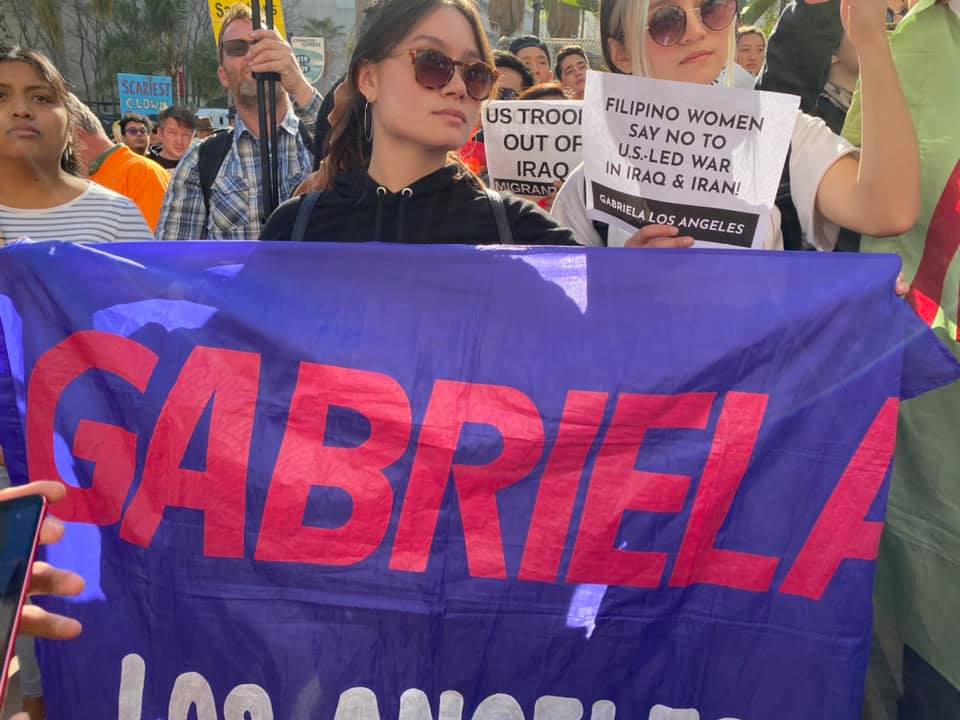
In 2020, GABRIELA is continuing work on its ‘Defend Women, Defend GABRIELA’ campaign, launched last year. It’s a response to ‘Oplan Kapanatagan’, President Duterte’s counterinsurgency policy that targets groups perceived to be standing in the way of the administration’s political and economic interests.
‘Defend Women, Defend GABRIELA’ aims to expose and fight the suppression of opposition to the Duterte government, like GABRIELA, and draw on both domestic and international political support in defence of the organisation and the struggle of the women it represents. It highlights resolutions, the struggles already fought like getting a congressional committee hearing to stop US Military Aid to the Philippines, and programs and services such as developing a pool of lawyers and paralegals to help marginalised individuals. It’s also a fightback against endo contractualization (the practice of companies giving employment to workers for less than six months and then terminating them so they do not have to pay benefits), land grabbing, destruction of ancestral land and environment, and eviction of the poor from their land.
“GABRIELA has helped me develop what feels like my own independent identity, rather than mirroring how other people perceive me”
While being a GABRIELA organiser is inspiring, it is also dangerous. Jo Lapira, a 22-year-old activist, GABRIELA Youth member, and University of the Philippines college student was murdered in 2017 in an encounter between the Philippines government officials and the communist New People’s Army in Nasugbu, Batangas. To friends and family, Lapira was described as a tiny activist with big dreams with a soft voice who stayed true to her convictions. GABRIELA was devastated by her death and rebuked the military for revealing the name of Lapira without her family’s consent and releasing a photo of her lifeless body on a Facebook page (which also seemed to disprove the military’s statement that Lapira was treated in hospital before her death).
In October 2019, there was a raid on the regional offices of GABRIELA, Bayan Muna Partylist, and the National Federation of Sugar Workers in Bacalod, a city in the Visayas, the middle island of the Philippines. A total of 62 people were arrested and law enforcement branded them “communist rebels,” including six minors that the Philippine National Police has said they ‘rescued’.
Despite the dangers, we fight on. GABRIELA means so much to me; it’s more than just a feminist activist group. It is a group of fellow Filipinas that helped me become more connected to my culture. I study Tagalog through a subscription app called Drops and attempt to practise it with my cousin Ryan, who is also learning, with my parents, and anyone who I see is Filipino. I’m developing what feels like my own independent identity, rather than mirroring how other people perceive me. It has caused arguments with my parents, who are supporters of the Duterte regime, but instead of backing down, I stand up for myself.
Now my raised awareness makes me proud of my culture, its achievements and agitated to fight against injustices in the Philippines. It’s hard work, but it’s inspiring and I’m endlessly proud to be a part of this piece of activist history.


